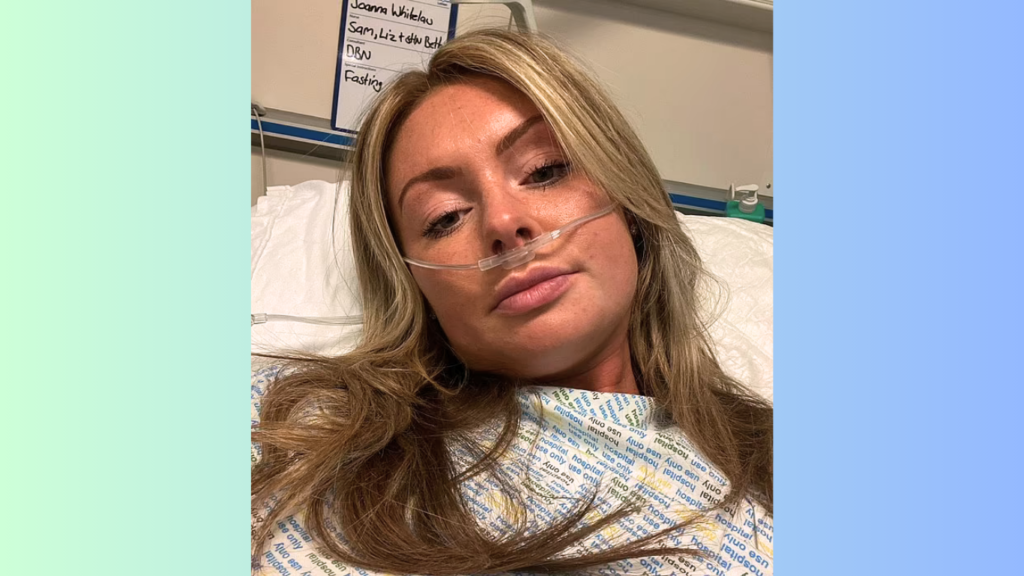Desk Report:
In a startling turn of events, a young woman’s night of celebration took an unexpected and life-altering twist. Joanna Whitelaw, a 27-year-old from Edinburgh, found herself at the center of a medical mystery when what she thought was a spiked drink turned out to be a stroke. This incident underscores the importance of recognizing stroke symptoms and seeking immediate medical attention. In this article, we will delve into Joanna’s experience and the critical signs of a stroke that can save lives.
Contents
A Night of Celebration Takes a Frightening Turn
Joanna Whitelaw was enjoying a night out in her hometown in May, celebrating a friend’s hen do. Little did she know that this night would change her life forever. While at a bar called Fingers in the city center, Joanna’s world took an unexpected turn. She suddenly felt her body go numb, and her vision blurred, causing her to fear that she had been drugged.
Misdiagnosis and Concerns
Joanna’s friends, concerned for her well-being, quickly rushed her out of the bar and called her boyfriend to take her home. But when her vision didn’t return the following day, Joanna grew increasingly alarmed. She decided to take matters into her own hands and made her way to the emergency room (A&E).
Doctors conducted three CT scans and an MRI, eventually revealing the shocking truth: Joanna had suffered a stroke. Further examinations uncovered an undiagnosed hole in her heart, which required surgical intervention.
The Shocking Revelation
Recalling her ordeal, Joanna said, “I was having the best night—playing games and having a good time with friends. It was until I was in the club, and I didn’t feel right and thought I’d been spiked. I’m an otherwise fit and healthy person—I go to the gym and run regularly. I’ve never had any other symptoms, so it came as a huge shock.”

Recognizing Stroke Symptoms
Joanna’s experience highlights the importance of recognizing stroke symptoms promptly. The acronym F.A.S.T. can help you identify someone having a stroke:
Face: Check if one side of their face has drooped, if they can smile, or if their mouth or eye has drooped.
Arms: See if the person can lift both arms and keep them there; weakness or numbness in one arm may be a sign.
Speech: Listen to their speech; it may be slurred or garbled, or they may be unable to talk at all, despite appearing awake.
Time: If you notice any of these signs or symptoms, call 999 immediately.
Source: NHS
The Road to Recovery
Joanna alerted her friends when she suddenly felt “really strange” at the bar, but her initial misdiagnosis delayed her treatment. She underwent a three-day hospital stay and a follow-up procedure to address the hole in her heart. Despite the challenges she faced, Joanna remains hopeful about her recovery.
She shared, “Doctors told me that between three and six months after a stroke is the hardest, and it will gradually get better. I still haven’t regained all of the feeling back. I’m having to re-learn things like going to the gym.”
The Silent Threat of Strokes
Strokes are more common than we might think. In the UK alone, over 100,000 strokes occur each year, resulting in nearly 40,000 deaths. It ranks as the fourth leading cause of death in the UK and is a significant cause of disability. In the United States, nearly 800,000 people suffer from strokes annually, with 137,000 fatalities.
Several risk factors contribute to stroke, including age, high blood pressure, smoking, obesity, a sedentary lifestyle, diabetes, and family history. A stroke occurs when a blood vessel is blocked or bursts, cutting off blood supply to parts of the brain.

A Message of Awareness
Joanna’s story serves as a poignant reminder of the unpredictability of life and the importance of recognizing stroke symptoms promptly. Her initial misdiagnosis could have had devastating consequences. By sharing her experience, she hopes to raise awareness and encourage others to seek medical help quickly.
Joanna said, “I thought it was being spiked, and the next day, I still didn’t suspect a stroke. Hopefully, it can help other people get medical help quickly.”
In conclusion, Joanna’s journey highlights the critical need for awareness about stroke symptoms and the importance of acting swiftly in the face of this life-threatening condition. By familiarizing ourselves with the F.A.S.T. acronym and understanding the signs, we can all play a role in saving lives and preventing the devastating consequences of strokes.


